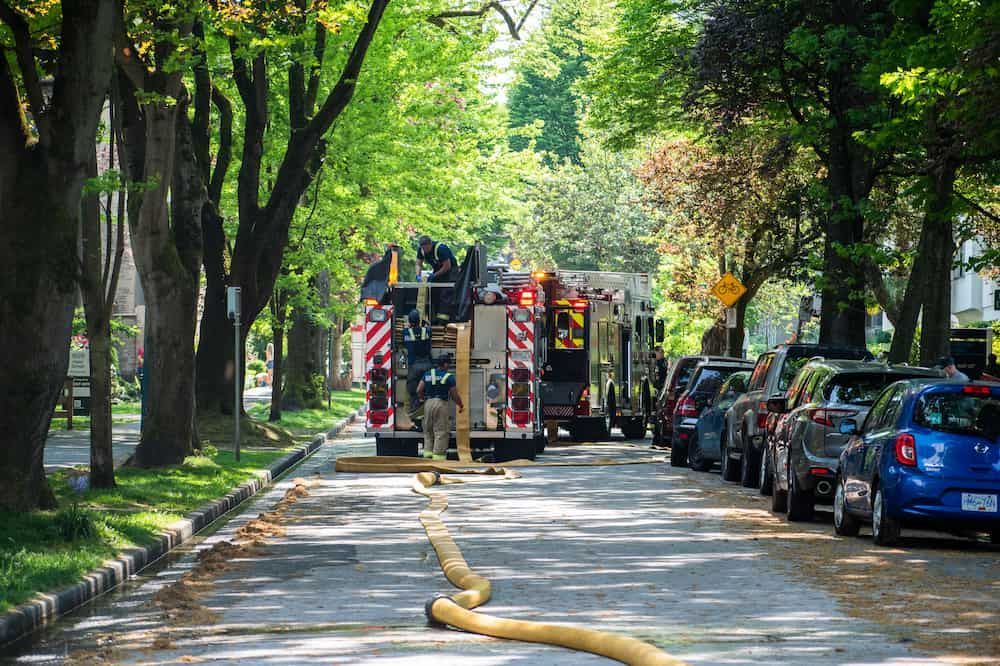This is a subtitle for your new post

Is A Fire Suppression System Worth It?
It is no secret that the value of all assets within your business is now more precious than ever. Whether that be sensitive equipment or even just the bills you’re paying each month to sustain your business.
Added to the fact that technology is advancing at a rapid rate, the price to pay if a fire outbreak occurs will rack up a hefty fine that no company wants to receive. To combat this, fire protection has to be understood by all business owners, but is a fire suppression system worth it for your specific company?
In this article, we will unravel this topic in detail to ensure that you and your staff members have an actionable answer to act upon within your fire safety protocols. Keep reading to discover whether fire suppression installation is necessary today!
What is a Fire Suppression System Used in Replacement Of?
Fire suppression systems are modern-day fire protection methods used to control and extinguish fires automatically when fire is detected. There are a multitude of extinguishing systems on the market that have different qualities to suit certain scenarios with their design and installation procedures.
However, the general consensus is that fire suppression systems are the most efficient way of sending heat detection warning signals and then releasing a compound into the atmosphere almost immediately to combat the combustion process.
Therefore, a fire suppression system nowadays is used as a replacement for traditional fire suppression methods, such as water-based systems and fire extinguishers by hand.
While these systems and extinguishers, such as sprinklers or fire extinguishers, are effective in some situations, there are environments where they may not be suitable or can cause additional or significant damage to your equipment and the staff involved.
Installing a fire suppression system, on the other hand, provides a much more effective alternative solution in most cases, offering targeted fire extinguishment without the use of water or human intervention.
These systems are often used in areas with sensitive equipment where a conventional water system would be detrimental or in spaces where quick suppression is required, such as server rooms, data centres, control rooms, and facilities with any other valuable assets.
The Importance of Fire Suppression Systems
In comparison to the old ways, the new fire suppression systems are manufactured to be a safer and more efficient way of suppressing flames in the event of a fire. Having a team of staff in your place of business and a plethora of expensive, invaluable equipment can be damaged instantly if you’re not prepared for it.
However, automatic fire suppression systems ensure that human intervention is not necessary and that fires are detected and dealt with in a matter of moments.
Let’s say that you stuck with the traditional fire extinguishing methods, such as fire sprinklers and fire extinguishers, and you weren’t best prepared for a fire to occur. Not only would that fire cause injuries and potential death within the workplace, but the entire infrastructure of your building could be taken away from you within a blink of an eye.
Human intervention and fire extinguishers take some time to begin the extinguishing process, and water-based systems can cause lasting damage to your equipment. Thus, you can rest assured that installing a high-tech fire suppression system will allow your staff to evacuate while suppressing the flames and protecting your valuable equipment.
Exploring How the Different Types of Fire Suppression Systems Work
As discussed, we know that all fire suppression systems automatically detect the heat of the fire through detection tubes and thermal sensors. Then, depending on the system you have in place within your application, the fire will be extinguished. If you want to invest in a fire suppression system, you need to ensure that this model is going to suit your premises in the best way possible.
Here are the most common types of fire suppression systems that are installed today and how they function at a high level at all times, no matter the intensity of the fire:
Gaseous Fire Suppression Systems
These systems use inert gases or dry/ wet chemical agents to extinguish fires without the need for water. In gaseous systems like FM-200 or Novec 1230, the agent is stored in cylinders or containers and released into the protected space upon fire detection.
Instead of removing the heat element, these gases displace oxygen instead, reducing its concentration and suffocating the fire.
Foam-Based Fire Suppression Systems
Although gaseous fire suppression systems are the most common and preferred on the market, foam suppression systems are also suitable for flammable liquid fires. Hence, if you’re in a line of business where this may be prevalent, this could potentially be the perfect fit for you.
The foam blanket works to completely separate the energy of the fire from oxygen, suppressing the fire and preventing the re-ignition of the initial flame.
Foam systems are commonly used in industries with a higher risk of fuel spills, such as chemical plants or fuel storage areas, so if you’re reading this and your work conditions match this setting, it may be worth considering this system instead.
Dry Chemical Fire Suppression Systems
Lastly, dry chemical fire suppression systems are another sought-after model in an array of industries today. They use dry powders, such as class A, B, and C powders, to smother fires within an instant.
These powders work by interrupting the chemical reaction of the fire, forming a barrier between the fuel and oxygen. Dry chemical systems are adaptable and effective against multiple fire classes, giving you another alternative to the common gaseous or foam-based fire suppression methods.
Should You Invest in Fire Suppression Installation?
So, should you invest in fire suppression installation, and is it worth paying more money than an original fire extinguisher or water-based system? In short, yes, you should, because, as a firm, your priority should be to ensure that health and safety are taken care of in the best regard, as people’s lives should be more important than a slightly more expensive one-time payment.
Fire suppression systems give you the best chance of surviving a fire, leaving you with minimal to no damage in the aftermath. Whether it is the safety of multiple people or expensive equipment, if you use the correct fire protection system for your application, the results will be worth every penny.
If you need expert advice on what cost-effective fire suppression system will fit your needs for fire risk, MEP Fire are your nationwide fire protection specialists and will always be on hand whenever you need help via phone or email to help you make the all-important final decision. Get in touch with us today!


